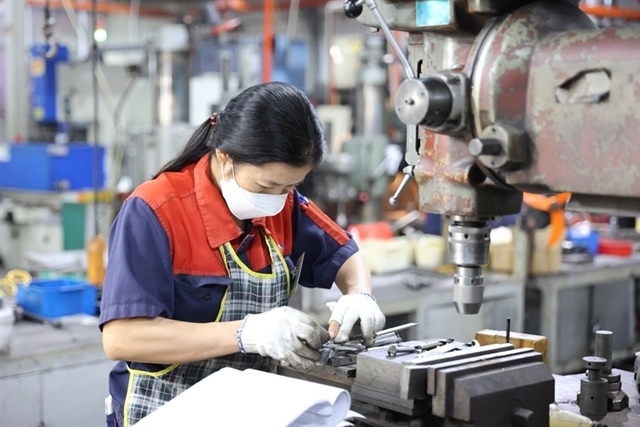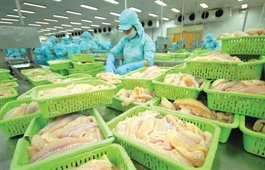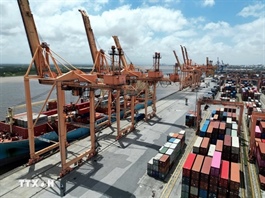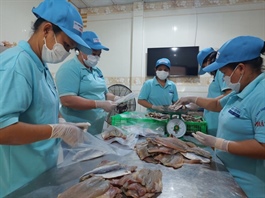New decree paves the way for supporting industry breakthrough
New decree paves the way for supporting industry breakthrough
Vietnam has rolled out new incentives under Decree 205 to empower supporting industries, foster technology adoption, and elevate small- and medium-sized enterprises (SMEs)' competitiveness in domestic and international supply chains.
Government Decree No. 205/2025/ND-CP (Decree 205) amends and supplements several articles of Decree No. 111/2015/ND-CP on the development of supporting industries.
The new decree introduces a range of incentives aimed at accelerating the growth of enterprises in this critical sector.
While many experts and businesses acknowledge the importance of expanding incentives, they also stress that broader conditions are needed for the industry to thrive sustainably.
|
A standout feature of Decree 205 is its reinforced support for research, technology application, and transfer activities related to producing prioritised supporting industry products.
Organisations and individuals involved in technological innovation are now eligible for funding from the National Technology Innovation Fund, the National Science and Technology Development Fund, the National High-Tech Development Programme, and other incentive mechanisms.
The decree also provides targeted assistance for technology application and transfer efforts aimed at manufacturing products on the government’s prioritised list for supporting industry development.
Specifically, it covers up to 50 per cent of the investment costs for machinery, prototypes, design, software, training, expert consulting, patents, technology ownership and industrial property right transfers, and result verification for joint research and technology transfer projects between businesses and scientific organisations.
Additionally, it provides up to 70 per cent THE funding for programmes that improve the quality and availability of experts and consultants in the technology application and transfer field.
In terms of human resource development, Decree 205 offers training support-,both at home and abroad, for outstanding students, lecturers, researchers, experts, managers, technicians, and skilled workers.
Funding will come from the Supporting Industry Development Programme and other workforce training initiatives.
Enterprises operating in this sector are also eligible for up to 50 per cent reimbursement of costs related to product testing, quality assessment and certification, consulting on quality standards, and the establishment and publication of internal standards, as well as certification for quality management systems.
In a recent talk with the press, Le Quoc Phuong, former deputy director of the Industry and Trade Information Centre under the Ministry of Industry and Trade, noted that although Vietnam's industrial sector, including supporting industries, has made progress, it remains largely focused on assembly and subcontracting.
To raise the localisation rate, he emphasised, strengthening supporting industries is essential.
Phuong, however, pointed out that while expanding incentives is necessary, it is not the decisive factor for the sector’s advancement. In his view, the determining factors include institutional reform and the competitiveness of Vietnamese industrial enterprises.
Citing international experience, Phuong added, “In many countries, large firms are prohibited from producing their own components or auxiliary equipment. Instead, this space is reserved for small- and medium-sized enterprises (SMEs) specialising in supporting industries. That’s a lesson we can learn from, the country needs complementary incentive policies to empower local SMEs.”
Nguyen Trung Kien, CEO of Hanoi-based KNTECH, a company specialising in consumer electronics and technical-electromechanical services, welcomed Decree 205.
He said the new incentives would help SMEs access advanced technologies, improve product quality, and enhance their competitiveness in global markets.
“To ensure these incentives are effectively applied, authorities must strengthen oversight to prevent misuse, while also enhancing administrative capacity to better support investors. On the business side, firms need to improve their technical and financial capabilities to seize these opportunities,” Kien recommended.
According to the Ministry of Industry and Trade, Vietnam’s supporting industries have shown promising progress in recent years, fuelLed by government support policies and the proactive efforts of the business community.
The country currently has around 5,000 supporting industry businesses, supplying products domestically and exporting to key markets such as South Korea, Japan, China, and the United States. Their products include electric cables, gearboxes, and plastic components.
- 11:31 30/07/2025
























